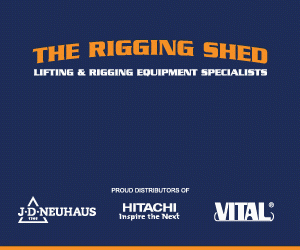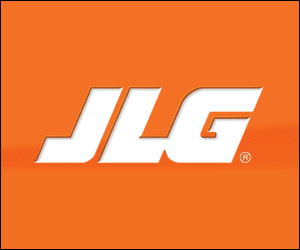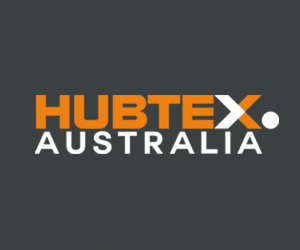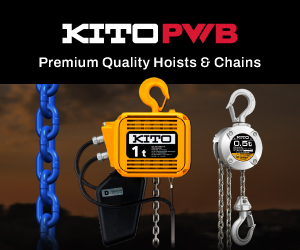)
Solar Charging Electric Forklifts Unlocks Economic Potential.
Smart Recycling, an environmentally focused business group that transforms timber, commercial, green and builders waste into recycled pallets, timber packaging, landscaping and building products, has unlocked the economic potential of Toyota Material Handling Australia’s electric forklifts by charging them with solar electricity.
Operating from the waste converters depot in Dandenong South, Victoria, the family owned businesses annually divert over 50,000 tonnes of waste from landfill and is one of the state’s largest timber pallet recyclers. The Smart Recycling site transforms 95 percent of received-waste into cost-effective, environmentally friendly products.
Managing director, Ward Petherbridge, said the business started transitioning from diesel-powered forklifts to a fleet of Toyota electric-engined equivalents after he spent time living in the Netherlands studying environmental science. Ward joined his father Geoff’s business, which formerly operated a sand pit and solid waste tip on the present site, in 1995 with a vision to turn the facility into a recycling business. “Recycling was pretty advanced in Holland in the Nineties, but there wasn’t much of it going on in Australia at that time. We had the permits to receive waste, so we came up with the idea of recycling,” he said. Today four businesses, that annually divert over 50,000 tonnes of waste from landfill annually, operate from the Waste Converters site.
“In 1995, I thought it would be a good starting point to separate green waste for composting and to make a blended top-soil. Then timber-mulching” said Ward. “We grew from there and then started making pallets. Now, recycled pallets represent about 80 percent of the turnover on the Smart Recycling site. We manufacture pallets from recycled timber and also repair damaged pallets. We provide a net carbon benefit of 14,500 tonnes from timber recycling, alone. That business employs about 40 staff and that’s what all the Toyota forklifts on that site are for.”
Smart Recycling currently has four Toyota 8FBN 2.5-tonne electric forklifts and is about to add another to its fleet. “The impetus for getting Toyota electric forklifts was putting 100kW of solar on our roof, which provides a ‘free’ source of electricity for charging the forklift batteries,” said Ward. The site’s former business relied exclusively on diesel-powered forklifts, but after installing the solar-system “the electric Toyota forklifts are saving a-good $100 per week, per machine on fuel. That really adds up as savings. The solar system is so efficient I have paid only a few hundred dollars for electricity over the last couple of years. The pay-back on the investment in the solar system is only about 3.5 years and we’ve had the electric Toyota forklifts for two years. So once it’s paid off, operating our Toyota electric forklifts makes even more financial sense.”
Toyota Material Handling Australia (TMHA) area sales manager, Grant Owen, said he personally shares Petherbridge’s commitment to reducing waste. “I like to be environmentally responsible and I find it important to consider the longevity of the things we use because, collectively, it makes a huge difference,” said Mr Owen. “Ward is naturally passionate about reducing environmental impacts through recycling and embracing technologies to do so. He’s a champion of waste-minimisation and he’s a natural forward-thinker. As such, he chooses the eco-friendliest equipment possible. He only deals with equipment that has low-footprint credentials and closely examines the lifecycle of equipment. That ties back to the quality, reliability and durability of our machines, which is a cornerstone of the Toyota Advantage and the reputation we go by.” Ward agrees. “We’ve had a lot of different forklift brands over the years and comparatively, the Toyotas are very-well built. In terms of quality, you generally get what you pay for. Some forklifts are a fraction of the cost but they don’t have the same lifecycle. Toyota forklifts are resilient machines.”
Ward’s vision extends even beyond the service life of his Toyota electric forklifts. “For us it’s about the chain of responsibility and the circular economy. For products, it’s very important in the design phase to plan what will be done with each major component at end-of-life. You need to ask: ‘How is it recycled and what is it turned back into? In this case, you want to know almost all forklift can be recycled. We’re interested in that because it’s the business we’re in, but also such considerations might become compulsory. E-waste is going to be banned from landfill so things such as mobile phones and TVs will need to be broken down and recycled. It may end up being the same case for forklifts.”
The conscious decision made by Smart Recycling to employ Toyota electric forklifts has a present and long-term benefit for its profits, and Petherbridge points to industrial solar as being key to such success. The heart of the business is reducing energy consumption and waste via efficiency which, hand-in-hand, creates an economic benefit and competitive edge. It’s the ethos of Smart Recylcing. “Our mantra is reduce, reuse, recycle, recover – and it also makes economic sense.” said Petherbridge.”









